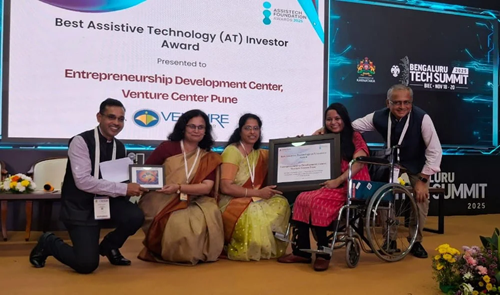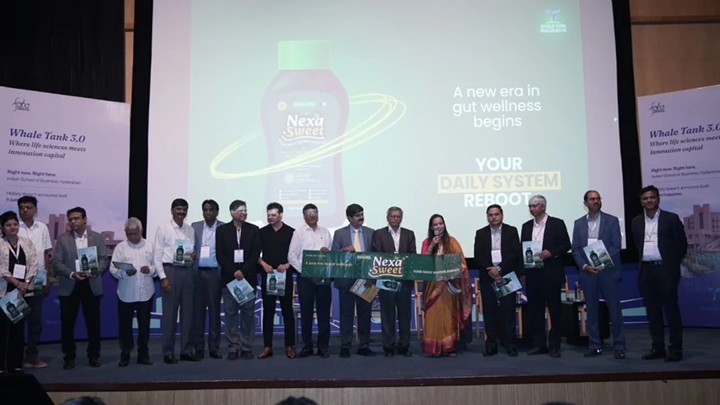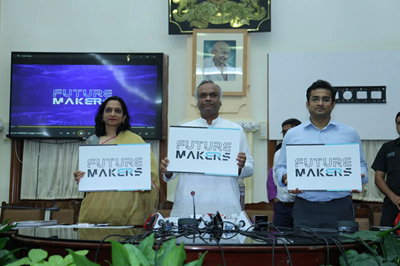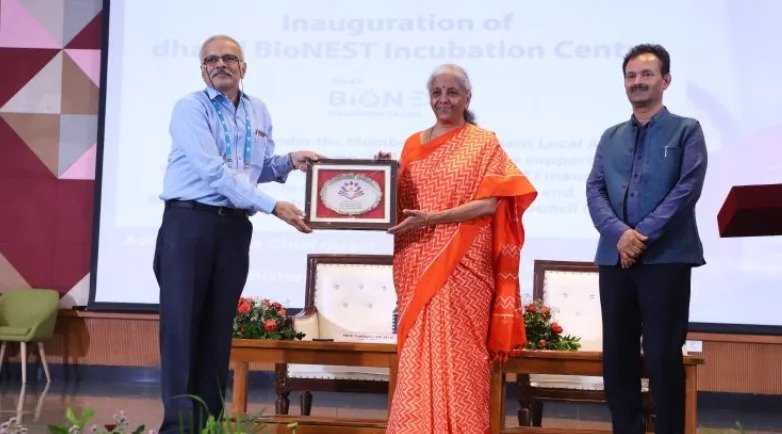Innovative Frontiers: How startups are shaping the future of synthetic biology
This innovation field holds significant promise for numerous applications, ranging from healthcare, and agriculture to environmental sustainability and bioenergy

Synthetic Biology is an interdisciplinary field that combines principles of biology, engineering and computer science to design and construct new biological parts, devices and systems, or to redesign existing natural biological systems for useful purposes. It leverages principle from genetics, biotechnology, and computer science to create organisms with novel functionalities. This innovation field holds significant promise for numerous applications, ranging from healthcare, and agriculture to environmental sustainability and bioenergy.
One of the main advantages of synthetic biology is its potential to address complex challenges in medicine. For instance, it enables the development of customized therapies, including precision medicine approaches that tailor treatments to individual genetic profiles. Moreover, synthetic biology facilitates the creation of synthetic organisms capable of producing pharmaceuticals, such as insulin or antibiotics, more efficiently and at lower costs compared to traditional methods,
Recent developments in synthetic biology have been remarkable. Companies like CRISPR Therapeutics and Editas Medicine are harnessing gene editing technologies to develop treatments for genetic disorders. Meanwhile, Gingko Bioworks, Synlogic, TeselaGen Biotechnology are using synthetic biology to engineer microbes for industrial applications, such as producing bio-based chemicals and materials. Advances in computational biology and artificial intelligence are also accelerating the design and testing of synthetic biological systems, making the development process more precise and efficient.
Companies are heavily investing in synthetic biology due to its transformative potential. The ability to engineer organisms to produce high-value compounds, biofuels, and biodegradables materials offers substantial economic and environmental benefits. Additionally, synthetic biology’s capability to create sustainable alternatives to petrochemicals and reduce greenhouse gas emissions aligns with the global push towards sustainability and climate change mitigation.
In under five years, Synceres Biosciences, based in Guangming Science City, Shenzhen, has grown into a synthetic biology "rising star" valued at over 1 billion yuan ($137.95 million). It evolved from a small team to nearly 200 employees, attracting 300 million yuan in funding, and transitioned from research to global product sales. This growth was fueled by the innovation ecosystem in Guangming Science City, featuring the Industrial Innovation Center for Engineering Biology, which supports both basic research and commercialization. The center's integrated innovation chain and supportive policies have helped Synceres and over 90 other companies flourish, forming a synthetic biology cluster valued at 27 billion yuan.
Synlogic announced the publication of its Synpheny-1 Phase 2 study in Nature Metabolism in 2023, highlighting the efficacy and safety of their synthetic biotic drug candidates, SYNB1934 and SYNB1618, for treating phenylketonuria (PKU). The study demonstrated clinically meaningful, dose-dependent reductions in plasma phenylalanine levels, reinforcing the potential of these treatments. The drugs are designed to target and consume phenylalanine in the GI tract, addressing a critical need for PKU management. Following these positive results, the pivotal Phase 3 study, Synpheny-3, is underway.
TeselaGen announced the spin-off of Built Biotechnologies, focusing on advanced DNA manufacturing workflows for applications in cell and gene therapies, agricultural biotechnology, and phage genomics. Built addresses challenges in constructing complex DNA molecules essential for synthetic biology advancements. The new entity will operate a state-of-the-art lab in Charlottesville, VA, facilitating collaboration and innovation. This move allows TeselaGen to further test and validate their computational models, enhancing their biotech R&D capabilities.
Asimov has launched its 4th generation CHO Edge System, featuring AI-driven optimizations to enhance titer guarantees. The system ensures typical titers of 5-11 g/L for various biologics and guarantees a minimum of 5 g/L for IgG monoclonal antibodies in its Cell Line Development (CLD) Service. It integrates advanced vector architectures, genetic parts, and AI models to improve expression and process efficiency. If the minimum titer is not achieved, Asimov waives the service fee. The system aims to set new standards in cell line development by leveraging robust methodologies and predictive modeling.
Pragma Bio, dubbed “The BGC Company,” focuses on Biosynthetic Gene Clusters (BGCs), groups of genes in microbial genomes that produce unique compounds like antibiotics and immune regulators. These BGCs encode secondary metabolites, crucial for specialized functions beyond survival. Pragma leverages BGCs from human gut bacteria, which have co-evolved with humans to produce bioactive compounds with therapeutic potential.
BGC-derived secondary metabolites have inspired many successful drugs, but their direct chemical analysis is challenging. Pragma uses genetic engineering and synthetic biology to optimize and synthesize these compounds, aiming to develop new precision therapeutics. Their approach includes proprietary algorithms and the largest gut-associated BGC database to identify and test promising BGCs.
Pragma's focus is on gut bacteria that regulate the immune system, targeting unmet needs in drug discovery. They aim to harness BGCs not only for human health but also for applications in food, animal health, and agriculture, utilizing the vast potential of microbial pharmacopeia.
Merck & Co. has partnered with Pearl Bio, a synthetic biology company, to develop cancer-fighting biologics, offering up to $1 billion in milestone payments. Pearl Bio, backed by Khosla Ventures and launched in June 2023, will use its platform to create biologics with tunable therapeutic properties. Co-founder Amy Cayne Schwartz highlighted the company's focus on encoding synthetic chemistries to optimize properties like half-life and drug-antibody ratios. Pearl Bio is currently raising its series A round to advance its technology and drive molecules to the clinic.
Synthetic biology stands at the forefront of modern scientific innovation, combining biology, engineering, and computer science to create and modify biological systems with unprecedented precision. This interdisciplinary field offers transformative potential across various industries, addressing critical challenges in healthcare, agriculture, and environmental sustainability. By enabling the development of customized therapies, more efficient production of pharmaceuticals, and sustainable alternatives to petrochemicals, synthetic biology is driving significant advancements and attracting substantial investments.
Recent developments in synthetic biology showcase the field's rapid progress and diverse applications. Advances in computational biology and artificial intelligence further enhance the precision and efficiency of synthetic biology, accelerating the design and testing of new biological systems. The growing investment in synthetic biology reflects its economic and environmental benefits. The ability to engineer organisms for high-value compounds, biofuels, and biodegradable materials aligns with global sustainability goals and the push towards reducing greenhouse gas emissions.
Overall, synthetic biology represents a revolutionary approach to biological engineering, with the potential to solve pressing global issues and drive innovation across multiple sectors. Its continued development and application promise to shape the future of medicine, industry, and environmental stewardship, making it a key area of focus for researchers and companies alike.
Published on : 08th August, 2024
BIO-TECH
-
IHH Healthcare and Fortis launch ‘IHH Catalyst’ to strengthen India’s healthcare innovation ecosystem 11th February, 2026

-
Venture Center receives ATF 2025 Honour for supporting assistive technology innovations 24th November, 2025

-
Vaidam Health and Vanuatu's Ministry of Health ink MoU to strengthen cross-border healthcare access 20th November, 2025

-
Whale Tank Biocatalysts hosts Startup-Investor Meet WT 3.0 in Hyderabad 17th November, 2025

-
BTS 2025 to host India’s largest entrepreneurship platform “Future Makers Conclave” on Nov 20 06th November, 2025

-
Bessemer Venture Partners leads Rs 125 Cr Series A funding in fertility startup Pluro 04th November, 2025

-
dhaRti BioNEST Incubation Centre opens at Indian Institute of Technology (IIT) Dharwad 15th October, 2025





